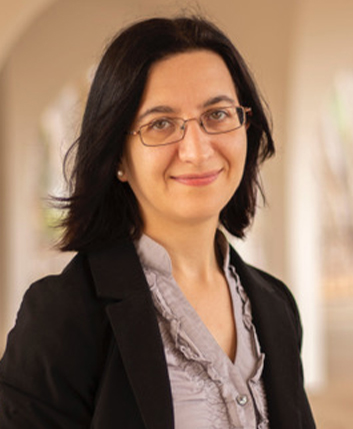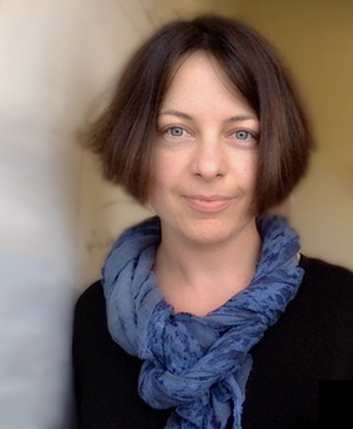2022 George W. and Carol A. Lattimer Faculty Research Fellows Announced
March 10, 2022 | By Michelle Franklin
The Division of Physical Sciences has announced the latest recipients of the George W. and Carol A. Lattimer Faculty Research Fellowship: Assistant Professor of Chemistry and Biochemistry Galia Debelouchina and Professor of Physics Olga Dudko.
The fellowship was created through a generous $500,000 donation from George and Carol Lattimer, enabling individual faculty members to pursue new ideas by working across scientific disciplines. Recognizing that faculty from across campus have built an extraordinary network for interdisciplinary research and training, the award is open to Division of Physical Sciences faculty and those who have interdisciplinary work with the division. Fellows receive $10,000 in unrestricted funds and coursework relief for one year. At the end of the term, fellows give a lecture on their research.

Galia Debelouchina’s fellowship research will use nuclear magnetic resonance (NMR) spectroscopy to illuminate the camouflaging properties of cephalopods. Octopi and other cephalopods have the remarkable ability to change their body color and camouflage themselves in the surrounding ocean environment. This ability is imparted by a family of proteins called reflectins that form layered structures in cephalopod iridophores. Unlike skin pigments, iridophores produce color changes through reflection rather than light absorption. It is believed that the reorganization of the reflectin layers in the iridophore structures can lead to new iridescent colors.
Due to their unique photonic properties, reflectins have attracted considerable attention as potential bio-inspired optical and camouflaging materials. To advance these applications, however, a detailed molecular understanding of the structural changes necessary to produce color change are needed.
Debelouchina will use solid-state NMR spectroscopy to better understand the underlying architecture of reflectins and how they operate. She plans to collaborate with groups from the Jacobs School of Engineering and Scripps Institution of Oceanography.
“UC San Diego has unique strengths in marine biology and the development of NMR spectroscopy tools to understand biological events at the molecular level,” stated Debelouchina. “We are very grateful for the support provided by the Lattimer Fellowship, which will allow us to combine these areas of expertise to understand and harness the fascinating properties of these proteins and organisms.”
 Olga Dudko
Olga Dudko
Olga Dudko is a theoretical physicist whose research covers a wide range of problems in biological physics. Her research is motivated by the notion that fundamental and deep, physics-based conceptual approaches can encompass living-systems complexity. Her current research is focused on physical principles of the spatiotemporal organization of the genome and a unifying understanding of cellular processes ranging from viral infection to neuronal communication. Dudko’s Lattimer fellowship research will explore the non-equilibrium statistical mechanics of the brain to develop a unifying theory that connects molecular-level events in the brain to our subjective, conscious experience of the world.
“Lack of a coherent theory to connect the molecular constituents of neuronal synapses to our personal, conscious experience of the world is one of the most fascinating and glaring gaps in biophysics. The current ad-hoc models of molecular machinery of synapses are largely disconnected from the studies of learning and perception,” Dudko stated. “With this fellowship, we would like to establish the organizational laws that map from molecules in the brain to the brain’s functional behavior, with the level of generality and predictive power that we expect in physical theories of non-living matter.”
